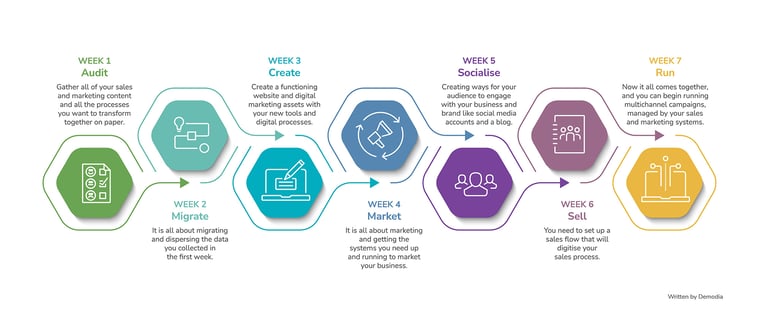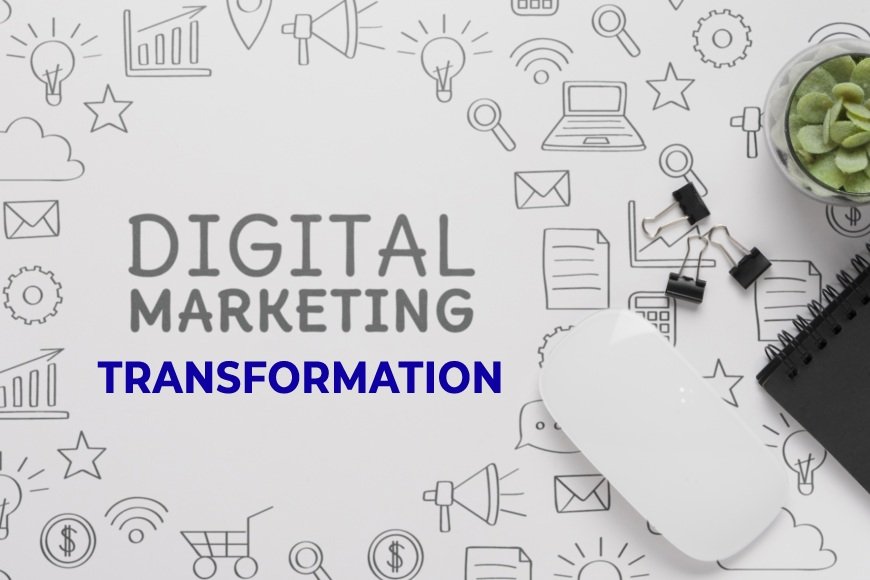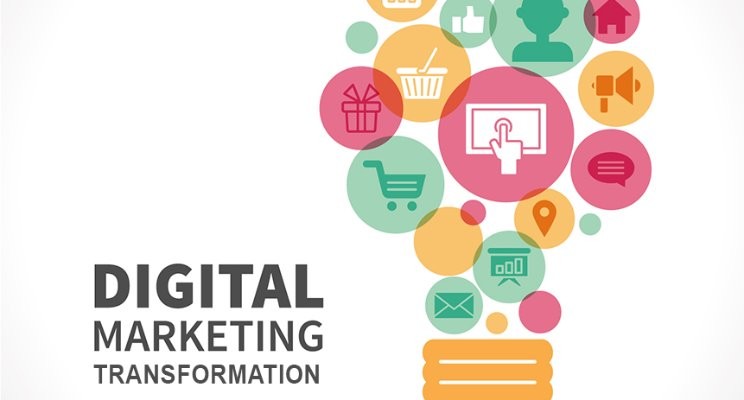Digital Marketing Transformation: A Complete Guide to Thriving in the Digital Age
The digital landscape is constantly evolving, and businesses need to adapt to thrive. Digital marketing transformation is more than just adopting new tools—it’s about redefining strategies, integrating data, and reshaping customer experiences to meet the demands of a tech-savvy audience.
In this article, we will dive deep into what digital marketing transformation is, why it’s essential for businesses, and how you can execute a successful transformation strategy.
What is Digital Marketing Transformation?
Digital marketing transformation refers to the integration of digital technology into all aspects of a business’s marketing efforts, creating a seamless and personalized customer experience. It involves embracing advanced tools, platforms, and analytics to make marketing more efficient and data-driven.
Key Components of Digital Marketing Transformation:
1. Customer-Centric Approach: Focusing on personalized experiences for your audience.
2. Data Utilization: Leveraging customer data for insights and targeted campaigns.
3. Integration of Tools: Streamlining operations with advanced platforms and automation.
4. Continuous Adaptation: Staying ahead of trends and evolving customer behavior.
“The best marketers are those who never stop transforming their strategies to align with new consumer expectations.”
Why Does Digital Marketing Transformation Matter?

The shift to digital has fundamentally changed how businesses interact with customers. A solid digital marketing transformation ensures you stay relevant in an increasingly competitive market.
Key Benefits of Digital Marketing Transformation
- Enhanced Customer Engagement
- Deliver personalized messages to the right audience at the right time.
- Example: Email campaigns tailored to customer preferences yield higher engagement rates.
- Improved ROI
- Data-driven campaigns ensure every dollar spent delivers measurable results.
- Example: Using analytics to identify high-converting channels reduces wasteful spending.
- Competitive Advantage
- Stay ahead of competitors by leveraging the latest marketing trends.
- Example: Brands with an active presence on social platforms like TikTok outperform traditional marketers.
- Scalability
- Automation and digital tools make scaling campaigns seamless and efficient.
- Real-Time Insights
- Analyze campaign performance in real-time and optimize strategies instantly.
Steps to Achieve Digital Marketing Transformation
1. Assess Your Current Marketing Efforts
Understand where you stand by analyzing your existing campaigns, tools, and audience engagement metrics.
Questions to Ask:
– Are your campaigns data-driven?
– Are your tools outdated or underutilized?
2. Develop a Customer-Centric Strategy
Shift your focus to meet customer needs. Utilize surveys, feedback forms, and analytics to understand pain points.
Example: Businesses using AI-powered chatbots improve customer satisfaction by 67%.
3. Invest in the Right Tools
Adopt CRM systems, marketing automation platforms, and AI-driven analytics tools for better efficiency.
– Recommended Tools:
– HubSpot for CRM
– SEMrush for SEO and content planning
– Hootsuite for social media management
4. Leverage Omnichannel Marketing
Connect with your audience across multiple touchpoints like email, social media, and mobile apps.
5. Train Your Team
Ensure your team understands and embraces digital tools and techniques. Training sessions and workshops can be game-changers.

Emerging Trends in Digital Marketing Transformation
1. Artificial Intelligence (AI)
AI-powered tools automate processes, predict customer behavior, and create personalized campaigns.
– Example: ChatGPT for conversational marketing.
2. Voice Search Optimization
With the rise of smart speakers, optimizing content for voice search is crucial.
– Tip: Focus on natural language and question-based keywords.
3. Video Marketing
Video content, especially short-form videos, drives engagement on platforms like Instagram Reels and TikTok.
4. Interactive Content
Quizzes, polls, and AR experiences keep users engaged and improve time-on-page metrics.
5. Blockchain for Transparency
Blockchain ensures transparency in ad placements and reduces ad fraud.
Learn More: Blockchain and Marketing: The Future
Challenges in Digital Marketing Transformation

- Resistance to Change
Employees and stakeholders may be hesitant to embrace new tools. -
High Initial Investment
Upgrading systems and training teams can be costly. -
Data Overload
Managing and analyzing vast amounts of data requires expertise. -
Cybersecurity Risks
With increased reliance on digital tools comes greater exposure to security threats. -
Rapid Technological Evolution
Keeping up with constantly changing tools and platforms is challenging.
Case Study: Starbucks’ Digital Marketing Transformation
Starbucks is a leader in digital transformation. Through its mobile app, the brand created a seamless experience for customers, integrating loyalty programs, mobile ordering, and personalized offers.
Results:
– 30% of orders in the U.S. now come through the app.
– Improved customer retention through personalized rewards.
Pro Tip: Take inspiration from industry leaders but tailor strategies to your unique audience.
FAQs About Digital Marketing Transformation
Q1: How long does digital marketing transformation take?
A: It varies depending on your business size and goals. Most businesses see significant changes within 6–12 months.
Q2: Is digital marketing transformation expensive?
A: While there are upfront costs, the ROI often justifies the investment, especially with improved efficiency and customer retention.
Q3: Can small businesses benefit from digital marketing transformation?
A: Absolutely. Tools like Google My Business and affordable automation platforms make it accessible for small businesses.
The Future of Digital Marketing Transformation
The future of digital marketing is exciting and promising. As technologies like 5G, AI, and AR/VR become mainstream, businesses will have unprecedented opportunities to engage customers.
Stat: By 2030, 80% of businesses are expected to fully adopt digital transformation, according to a report by McKinsey.
Conclusion
Digital marketing transformation is no longer a luxury—it’s a necessity. It enables businesses to deliver personalized experiences, make data-driven decisions, and stay ahead in a competitive market.
While the journey can be challenging, the rewards are undeniable. Start small, leverage the right tools, and keep your customers at the center of your strategy.
Take the leap today—your digital future awaits!


